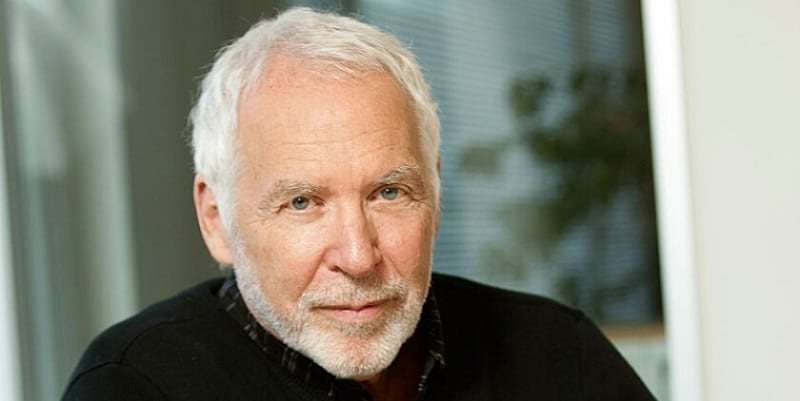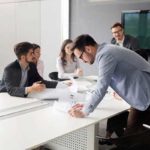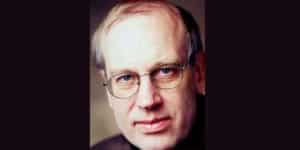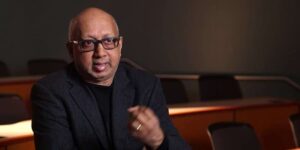Peter Block biography and books

Peter Block (born May 9, 1939) is an American author, speaker, and organizational development expert. He has made significant contributions to the field of organizational development and community building through his books, other publications, and consulting firms. Peter Block ’s most famous book is ‘Flawless Consulting: A Guide to Getting Your Expertise Used’.
The biography of Peter Block
Peter Block was born to Jewish parents, Ira and Dorothy Block. He currently lives with his wife, Cathy Kramer, in Cincinnati, Ohio.
Education and Career
Peter Block received a bachelor’s degree in industrial management from the University of Kansas in 1961 and a master’s degree in industrial administration from Yale University in 1963.
He began his career as a management consultant, specialized in Organizational Development in 1963 with the information services division of Esso (now ExxonMobil).
In the early 1970s, Peter co-founded the consulting firm ‘Block Petrella Weisbord’ with Tony Petrella and Marvin Weisbord. He is also the founder of The School for Managing of the Association for Quality and Participation and the training company Designed Learning.
Peter serves on the board of directors of Cincinnati Classical Public Radio, the advisory body of The Festival in the Workplace Institute, and the board of directors of Elementz Hip Hop Center in Cincinnati.
Together with other volunteers, Peter started A Small Group, which aims to promote dialogue towards a new community narrative, as emphasized in his work on citizen engagement. PR Newswire reported that Peter Block joined LivePerson Inc.’s board of directors.
Prizes
Peter Block received the Lifetime Achievement Award from the Organization Development Network in 2008.
In 2004, he received the first place Members’ Choice Award for his book ‘Flawless Consulting: A Guide to Getting Your Expertise Used’ (1999), recognized as the most influential book for organizational development practitioners in the past 40 years.
He has also received the Award for Distinguished Contributions from the American Society for Training and Development, the President’s Award from the Association for Quality and Participation, and is inducted into Training Magazine’s HRD Hall of Fame.
Work and Ideas
Peter Block’s work generally focuses on alternatives to patriarchal beliefs that are prevalent in Western culture.
He suggests that cultural change can happen through consent and connection, rather than coercion and power.
Peter argues that cultural change is only possible when it is preceded by strong relationships and connectedness between community members.
He is the author and co-author of several books, including his most recent work The Abundant Community: Awakening the Power of Families and Neighborhoods. He co-wrote this book with John McKnight, professor emeritus of education and social policy at Northwestern University. This book is the culmination of Peter’s community work and emphasizes the need for cultural change to build a more sustainable future.
Famous quotes by Peter Block
- “Why do anything unless it is going to be great?”
- “The goal is to balance a life that works with a life that counts.”
- “The key to creating or transforming community, then, is to see the power in the small but important elements of being with others.”
- “We are a community of possibilities, not a community of problems.”
- “Invitation is not only a step in bringing people together, it is also a fundamental way of being in a community.”
- “The interest we have in problems is so intense that at some point we take our identity from those problems.”
- “The choice to worry about why we are doing something more than how we do something is risky business.”
- “Maybe the unvarnished meaning of growing up is the acceptance that living out our values, and also winning the approval of those who have power over us, is an unfulfillable longing.”
- “We decide to move far enough to the edge of the culture to see it clearly.”
- “The essential challenge is to transform the isolation and self-interest within our communities into connectedness and caring for the whole.”
- “We change the world when we create the time and space for heartfelt, unique conversations that discuss values and affirm doubts, feelings, and intuition.”
- “How do you change the world? One room at a time. Which room? The one you’re in.”
- “We must establish a personal connection with each other. Connection before content. Without relatedness, no work can occur.”
- “All we have to do to create the future is to change the nature of our conversations, to go from blame to ownership, and from bargaining to commitment, and from problem-solving to possibility.”
- “Relationship and connectedness are the pre-condition for change. Every meeting, every process, every training program has to get people connected first. Otherwise, the content falls on deaf ears. So small groups are an essential building block to any future you want to create.”
- “Transformation comes more from pursuing profound questions than seeking practical answers.”
- “The essential challenge is to transform the isolation and self-interest within our communities into connectedness and caring for the whole.”
- “The shift in the world begins with a shift in our thinking. Shifting our thinking does not change the world, but it creates a condition where the shift in the world becomes possible.”
- “Good questions work on us, we don’t work on them. They are not a project to be completed but a doorway opening onto a greater depth of understanding, actions that will take us into being more fully alive.”
- “It is hard to learn when we think we know something.”
- “We need to tell people not to be helpful. Trying to be helpful and giving advice are really ways to control others. … Advice, recommendations, and obvious actions are exactly what increase the likelihood that tomorrow will be just like yesterday.”
- “Questions draw us together. Answers push us apart.”
- “If there is no transformation inside of us, all the structural change in the world will have no impact on our institutions.”
- “The task of leadership is to be intentional about the way we group people and the questions that we engage them in.”
- “If we believe something does not exist unless we measure it, then we put aside: love, feeling, intuition, art, and philosophy.”
- “It is a misuse of our power to take responsibility for solving problems that belong to others.”
- “One’s vision is not a road map but a compass.”
- “Advice is unfriendly to learning, especially when it is sought. Most of the time when people seek advice, they just want to be heard. Advice at best stops the conversation, definitely inhibits learning, and at worst claims dominance.”
- “I discovered that resolution of conflict comes from people being able to express their own feelings and their own needs in the face of another. Making agreements and setting goals without building upon the feelings of the parties involved is empty because it does not consider the vulnerabilities of our own humanity.”
- “As long as we wish for safety, we will have difficulty pursuing what matters.”
- “Dissent is the cousin of diversity; the respect for a wide range of beliefs. This begins by allowing people the space to say ‘no’. If we cannot say ‘no’, then our ‘yes’ has no meaning. Each needs the chance to express their doubts and reservations, without having to justify them, or move quickly into problem-solving. No is the beginning of the conversation for commitment.”
- “We must act as if our institutions are ours to create, our learning is ours to define, our leadership we seek is ours to become.”
- “The price of change is measured by our will and courage, our persistence, in the face of difficulty.”
- “The world does not need a better definition of issues, or better planning or project management. It needs the issues and the plans to have more of an impact, which is the promise of engagement.”
- “Structure influences behavior. Design spaces that make you feel ‘you are welcome here and that you came to the right place.'”
- “We are reluctant to let go of the belief that if I am to care for something I must control it.”
- “What worked yesterday is the gilded cage of tomorrow.”
- “Invitation is not only a step in bringing people together, it is also a fundamental way of being in a community. It manifests the willingness to live in a collaborative way. This means that a future can be created without having to force or sell it or barter for it. When we believe that barter or subtle coercion is necessary, we are operating out of a context of scarcity and self-interest, the core currencies of the economist.”
- “If you need ownership and responsibility from core workers, patriarchy can’t get you there.”
- “Every parent’s deepest wish is that their children are self-sufficient, happy, and able to live a full life.”
- “To be committed means you are willing to make a promise with no exception of return.”
- “Anecdotes, personal stories, reminiscences, like biblical parables, are the medium through which faith is restored. Stories are a form of poetry and give us a saving image to personally relate to.”
- “Change from the top down happens at the will and whim of those below.”
- “We have banished our artists to the fringe of society and tell them to eat cake. It is our artists who choose freedom over safety and use their talents to question and confront the culture.”
- “To live our lives fully, to work wholeheartedly, to refuse directly what we can’t swallow, to accept the mystery in all matters of meaning – this is the ultimate adventure.”
- “The choice to worry about why we are doing something more than how we do something is risky business.”
- “We get the leaders we create.”
- “How many times have we brought in an outsider to tell us what we already knew?”
- “Why follow the steps of another to find out where our dreams will lead us.”
- “If you believe that saying no will get you shot, well, what a fine way to go.”
- “Learning and performance will become one and the same thing. Everything you say about learning will be about performance. People will get the point that learning is everything.”
Publications, books and articles by Peter Block
- 2008. An Other Kingdom: Departing the Consumer Culture. Wiley.
- 2007. Freedom and Accountability at Work: Applying Philosophic Insight to the Real World. TED Books.
- 2004. The Other Kind of Smart: Simple Ways to Boost Your Emotional Intelligence for Greater Personal Effectiveness and Success. Berrett-Koehler Publishers.
- 2002. Civic Engagement and the Restoration of Community: Changing the Nature of the Conversation. John Wiley & Sons.
- 2001. The Answer to How Is Yes: Acting on What Matters. Berrett-Koehler Publishers.
- 1999. The Empowered Workplace: Reinventing Work for a New World. Wiley.
- 1998. The Abundant Community: Awakening the Power of Families and Neighborhoods. Berrett-Koehler Publishers.
- 1997. Community: The Structure of Belonging. Berrett-Koehler Publishers.
- 1995. The Answer to How Is Yes: Acting on What Matters. Berrett-Koehler Publishers.
- 1993. Empowering the Public Sector: Making the Difference. Jossey-Bass.
- 1991. The Empowered Manager: Positive Political Skills at Work (3rd Edition). Jossey-Bass.
- 1991. Flawless Consulting: A Guide to Getting Your Expertise Used. Jossey-Bass.
- 1990. The Empowered Manager: Positive Political Skills at Work (2nd Edition). Jossey-Bass.
- 1987. The Empowered Manager: Positive Political Skills at Work (1st Edition). Jossey-Bass.
- 1983. Stewardship: Choosing Service over Self-Interest. Berrett-Koehler Publishers.
How to cite this article:
Janse, B. (2023). Peter Block. Retrieved [insert date] from Toolshero: https://www.toolshero.com/toolsheroes/peter-block/
Original publication date: 06/06/2023 | Last update: 06/06/2023
Add a link to this page on your website:
<a href=”https://www.toolshero.com/toolsheroes/peter-block/”> Toolshero: Peter Block</a>












